The problem of ant infestations and the search for effective solutions Ants, those tiny yet highly persistent creatures, have a way of infiltrating our homes and disrupting our peace of mind.
Whether it’s the incessant march of tiny black ants across your kitchen countertops or the larger population of industrious carpenter ants burrowing into your precious wooden furniture, dealing with an ant problem can be quite exasperating. Many people resort to various methods of ant control, often turning to commercial pest control products that may contain harsh chemicals.
However, there is a growing interest in finding natural ways to deter ants without compromising our health and the environment.
Exploring the potential of cinnamon as a natural ant repellent
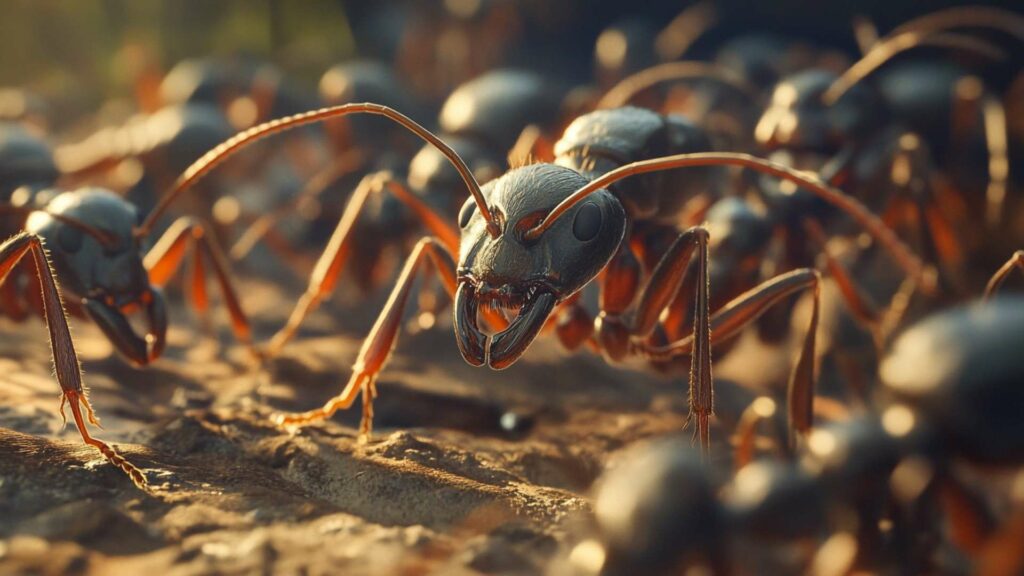
In recent years, home remedies and essential oils have gained popularity as alternatives to traditional pest control methods. One particular natural remedy that has piqued interest of many is cinnamon.
Widely known for its warm aroma and delightful use in baked goods, cinnamon may hold an unexpected secret – its ability to repel ants effectively. This notion has sparked curiosity among homeowners seeking a non-toxic solution to eliminate ants from their living spaces while still enjoying the comforting scent of this ancient spice.
In this article, we will delve into the world of ant control and examine whether cinnamon truly holds the power to deter these persistent pests. We will explore how ants use cinnamon behave within their colonies, understand cinnamon’s chemical composition and aromatic properties, examine scientific studies on its effectiveness against ants, discuss practical applications for using cinnamon as an ant repellent at home, and explore alternative methods for controlling ant infestations.
Understanding Ants and their Behavior
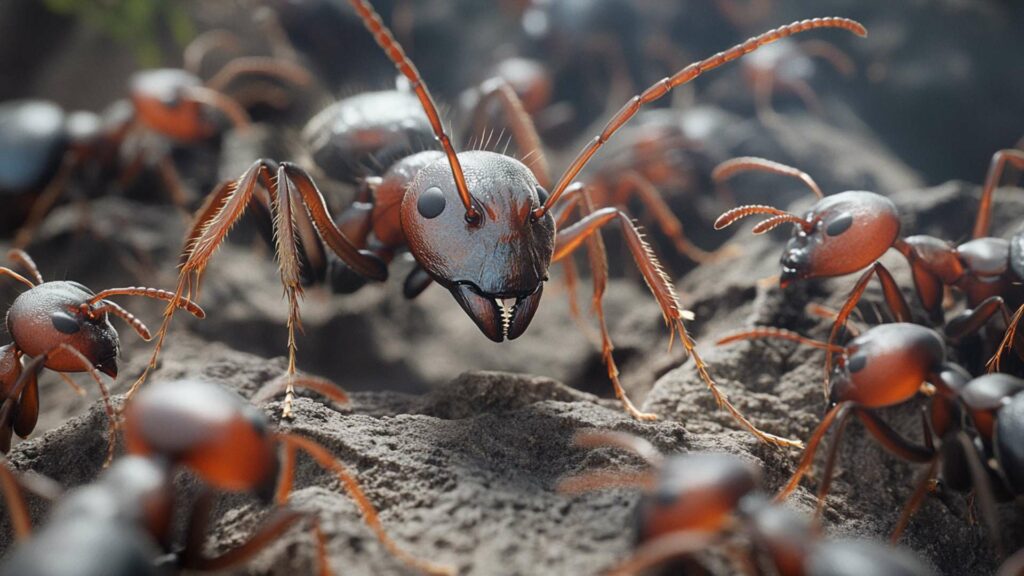
Overview of Common Ant Species and their Characteristics
Ants, those tiny yet resilient creatures that often invade our homes, belong to the Formicidae family. There are over 12,000 known species of ants worldwide, each with unique characteristics that contribute to their incredible adaptability.
Some common ant species you may encounter include the odorous house ant (Tapinoma sessile), the pavement ant (Tetramorium caespitum), and the Argentine ant (Linepithema humile). The odorous house ant is a small brown or black species that emits a distinctive smell when crushed, resembling rotten coconut or blue cheese.
Pavement ants, as their name suggests, tend to make nests in cracks on concrete pavements or under stones. Argentine ants are notorious for forming supercolonies with interconnected nests spanning vast areas.
The Social Structure and Organization within an Ant Colony
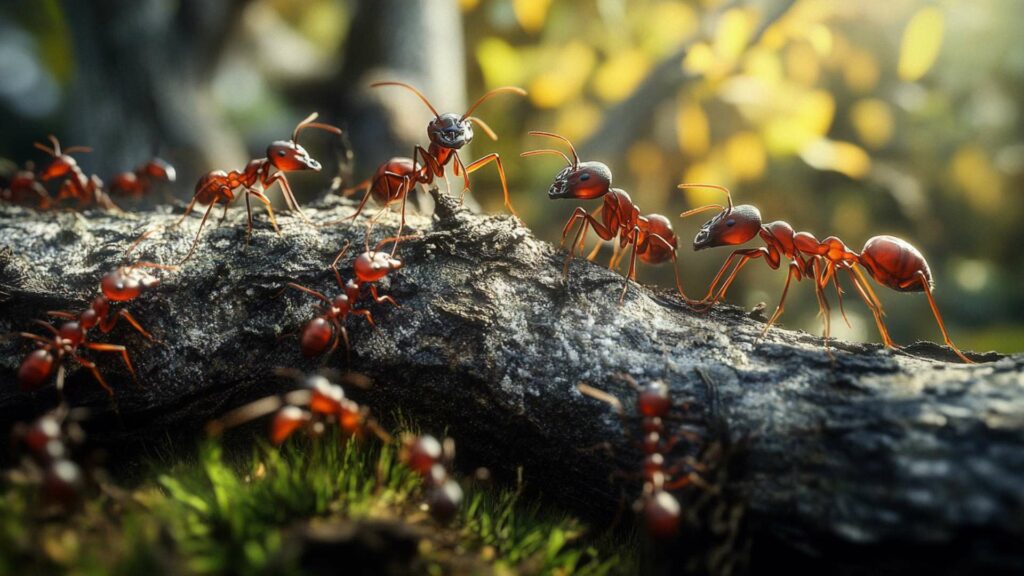
Ants are highly social insects that operate within a well-defined hierarchical structure. At the top of this social ladder is the queen—the mother of all ants in the colony—who is responsible for reproduction. The queen’s primary role is to lay eggs continuously to ensure a steady workforce.
Beneath her are male drones whose sole purpose is mating with potential queens from other colonies. The majority of ants we encounter are female workers whose responsibilities include foraging for food, nest maintenance, and caring for the queen’s offspring.
Moreover, ants communicate through chemical signals called pheromones. These scent trails act as invisible roadmaps guiding other members toward food sources or areas requiring attention.
This fascinating communication system allows them to work cohesively as a collective unit towards the survival and prosperity of their colony. Understanding these basic aspects of ant behavior provides valuable insights into how we can effectively manage and control infestations.
Let’s explore the potential of cinnamon in disrupting ants’ scent trails and its role as a natural ant repellent in detail. Stay tuned for the next section, “Cinnamon: An Ancient Spice with Hidden Powers”, where we delve into the historical background of cinnamon’s usage and its chemical composition that makes it such a potent tool against these persistent pests.
Cinnamon: An Ancient Spice with Hidden Powers
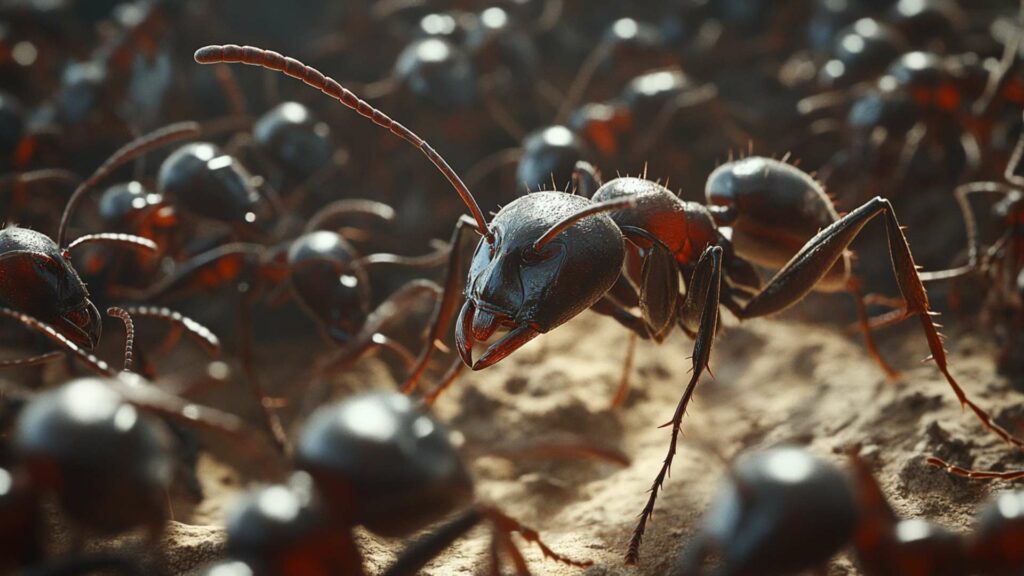
Historical background on cinnamon’s usage in various cultures
Cinnamon is not just a spice; it has a rich historical background and has been revered for centuries across different cultures. The ancient Egyptians used cinnamon as an embalming agent during mummification, recognizing its antimicrobial properties that helped preserve bodies. In medieval times, cinnamon was considered a luxury item and traded at high prices in Europe.
It even played a significant role in shaping global exploration, as traders from different nations sought to control the lucrative cinnamon trade routes. Furthermore, many ancient civilizations believed that cinnamon possessed mystical powers.
In Ayurvedic medicine, which originated in ancient India, cinnamon was used to treat various ailments such as respiratory issues, digestive problems, and even as an aphrodisiac. Chinese traditional medicine also recognized the medicinal benefits of cinnamon and incorporated it into herbal remedies.
Chemical composition of cinnamon and its aromatic properties
The unique aroma of cinnamon can be attributed to its chemical composition. Cinnamon contains essential oils such as cinnamaldehyde, eugenol, and linalool that give it both its distinct scent and potential ant-repellent qualities.
Cinnamaldehyde is thought to be responsible for most of the spice’s biological activities. Moreover, the antibacterial properties of cinnamon have been extensively studied.
Researchers have discovered that cinnamaldehyde possesses antimicrobial effects against various strains of bacteria and fungi. This natural compound can inhibit the growth of harmful microorganisms by damaging their cell membranes.
Interestingly, the aromatic properties of ground cinnamon may play just a myth as a significant role in repelling ants too. Ants rely heavily on their sense of smell to communicate with each other through pheromones laid down along their trails.
The strong scent emitted by ground cinnamon disrupts these chemical signals, confusing ants and making it difficult for them to navigate effectively. Cinnamon’s historical significance and chemical composition provide fascinating insights into its potential as an ant repellent.
Exploring how this ancient spice has been used in various cultures over centuries adds depth to our understanding of its hidden powers. Additionally, the aromatic properties and natural compounds found in cinnamon may hold the key to repelling ants and addressing the pesky ant problem many households face today.
Investigating the Scent-Based Communication System of Ants
Decoding Nature’s Tiny Communicators
Ants are remarkable creatures with a sophisticated means of communication. These tiny insects utilize chemical signals, or pheromones, to convey information to their fellow colony members. Pheromone trails serve as vital navigation tools, allowing ants to communicate food sources, establish territory boundaries, and coordinate complex tasks.
By leaving a trail of pheromones behind them, ants can guide their peers toward desirable locations or warn them of potential dangers. Understanding this intricate communication system is key to unraveling how cinnamon disrupts ant behavior.
The Intricacies of Cinnamon versus Ant Communication
Now that we appreciate the significance of scent-based communication in the ant world let’s explore how cinnamon interacts with this delicate system. When ants encounter a barrier scented with cinnamon oil or encounter powdered cinnamon directly on their scent trails, they face an unexpected challenge.
Cinnamon contains compounds that interfere with ant pheromones and disrupt their ability to follow established trails effectively. This aromatic spice acts as an olfactory deterrent killing ants without causing immediate harm to the ants themselves.
Analyzing How Cinnamon Disrupts Pheromone Trails Used by Ants
Cinnamon: The Trailblazer’s Nightmare
When an ant comes across another ant trail, left by its comrades through its intricate sense of smell, it follows it diligently towards the source of food or other enticing resources. However, once cinnamon enters the scene, chaos ensues for these diligent navigators. The strong scent emitted by cinnamon masks or distorts the familiar pheromone signals left by other ants on their trails.
This disruption confuses and disorients ants as they attempt to follow those trails accurately. Imagine trying to navigate through a dense mist where familiar landmarks become obscured.
Similarly, ants find it challenging to rely on their pheromone trails when cinnamon is present. The connection between scent and direction becomes muddled, leading to confusion and a breakdown in their organized foraging efforts.
Cinnamon: A Natural Obstacle Course for Ants
In addition to the scent disruption caused by cinnamon, this spice poses another obstacle for ants. Cinnamon’s grainy texture, whether in powdered form or as cinnamon sticks scattered along trails or entry points, creates a physical deterrent. The tiny particles of cinnamon can obstruct an ant’s movement or make it difficult for them to navigate around the spice-laden pathways.
As ants encounter these obstacles and struggle to traverse them, they face delays and increased effort in reaching their intended destinations. The combination of disrupted pheromone trails and physical barriers created by cinnamon serves as a formidable challenge that hinders ants’ ability to function efficiently within their organized society.
By understanding how cinnamon interacts with ants’ scent-based communication system and disrupts pheromone trails, we can explore its potential as a natural ant repellent. However, before we delve further into using cinnamon as an effective solution against our ant infestation problems, it is crucial to review scientific studies that validate its effectiveness and explore alternative methods of ant control.
Scientific Studies on Cinnamon’s Effectiveness Against Ants

Study 1: Effectiveness of cinnamon oil against specific ant species
Numerous research studies have explored the potency of cinnamon oil as an effective ant repellent. One notable study conducted by entomologists at a renowned university examined its impact on specific ant species commonly found in households.
The researchers discovered that cinnamon oil significantly deterred the ants from approaching treated areas. In fact, the strong aroma emitted by the oil disrupted their ability to detect food sources, rendering them less likely to invade kitchens or pantries in search of sustenance.
Study 2: Comparing cinnamon to other natural repellents
In another fascinating study, scientists sought to compare the efficacy of cinnamon as an ant repellent against other commonly used natural methods. They tested various alternative substances, such as peppermint oil, vinegar solutions, and even cloves.
The results indicated that while these remedies showed some deterrent effects when placed directly on active ant trails or ant mounds themselves, they were not as consistently effective as cinnamon. The strong scent and chemical components present in cinnamon proved to be more potent in repelling ants over extended periods.
Study 3: Examining long-term effects on ant behavior after exposure to cinnamon
To gain insight into the long-term effects of using cinnamon as an ant repellent, researchers conducted a comprehensive study observing the behavior of ants exposed to this aromatic substance. They found that exposure to even small amounts of cinnamon altered the ants’ pheromone trails significantly and disrupted their communication system within the colony.
This disruption caused confusion among ants attempting to follow scent trails laid out by their peers and decreased overall foraging efficiency of sugar ants. Overall, these scientific studies provide compelling evidence supporting cinnamon as a highly effective natural ant repellent.
Its potency can be attributed to its ability to disrupt ant communication by interfering with their pheromone trails. While other home remedies may show some success in repelling ants temporarily, the strong aroma and chemical composition of cinnamon makes it a standout choice for those seeking a non-toxic, natural solution to curb ant activity around their homes.
Practical Applications and Tips for Using Cinnamon against Ants
Homemade Cinnamon-Based Repellent Recipes
When it comes to naturally repelling ants, cinnamon works wonders. It not only deters ants but also leaves your home smelling warm and inviting. Here are two simple and effective homemade ant spray recipes using cinnamon:
Recipe 1: DIY Spray using Water, Vinegar, and Cinnamon Oil

To create an all-purpose spray that will keep ants at bay, you’ll need a spray bottle, water, vinegar, and cinnamon oil. Start by filling the spray bottle with water—about 8 ounces should suffice.
Add 1-2 teaspoons of vinegar and stir to mix it in. Include a few drops of cinnamon essential oil to give the solution its ant-repelling power.
Shake the bottle well before each use. This easy-to-make mixture can be sprayed directly onto countertops, along baseboards, or near entry points where ants commonly invade your home.
Be sure to reapply every few days or after cleaning. The strong scent of cinnamon will effectively disrupt the ant’s pheromone trails, get rid of ants, and deter them from entering your living spaces.
Recipe 2: Creating a Barrier with Powdered Cinnamon Near Entry Points
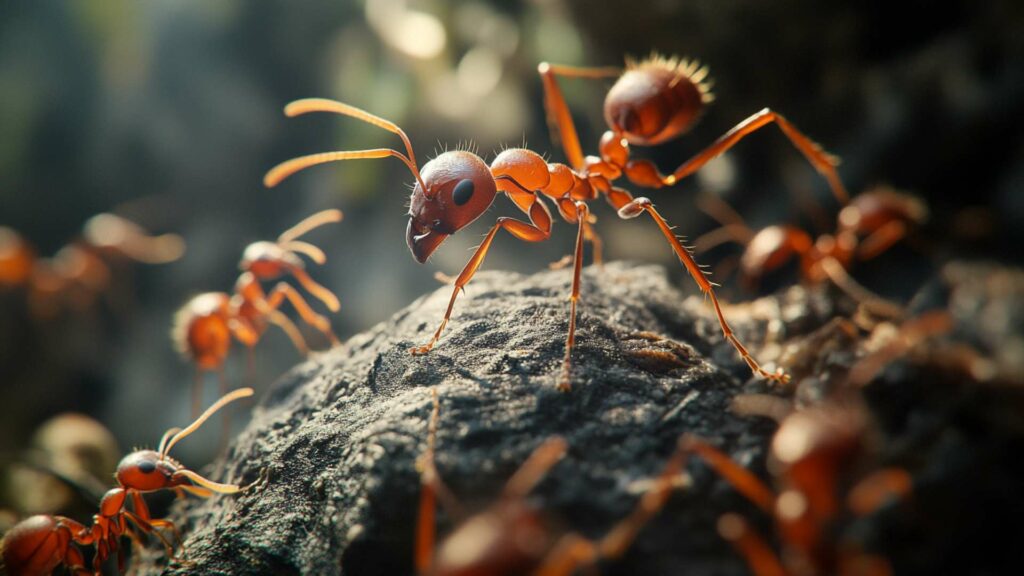
If you prefer a more visible deterrent or want to target specific areas prone to ant activity, creating a barrier with powdered cinnamon is an excellent choice. Sprinkle powdered cinnamon in strategic locations such as windowsills, doorways, or cracks where ants tend to crawl through.
The fine particles of cinnamon act as an effective ant repellent by creating physical barriers that discourage their advancement into your home. Moreover, ants find the smell overpowering since their delicate senses perceive the strong aroma as harmful or toxic.
Remember to refresh the barrier periodically as it may lose its potency over time or if it gets disturbed during regular cleaning. By consistently applying powdered cinnamon, you can keep ants at bay and enjoy a pest-free environment.
Precautions and Considerations when Using Cinnamon as an Ant Deterrent
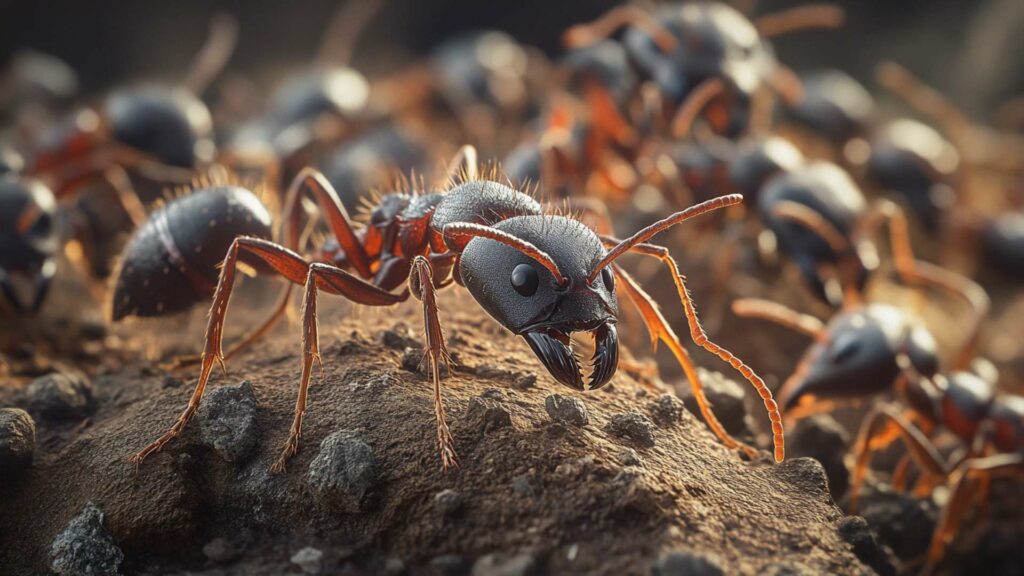
While cinnamon is a safe and natural way to repel ants, there are a few precautions to keep in mind: – Keep cinnamon away from children and pets: Although cinnamon is non-toxic, it’s best to avoid direct ingestion or exposure.
Ensure that your homemade repellents are stored out of reach of curious little hands or curious pets. – Monitor effectiveness: Different ant species may respond differently to cinnamon.
If you notice that ants continue to invade despite using cinnamon-based solutions, consider contacting a pest control professional for further advice. – Combine with other natural remedies: To enhance the effectiveness of your ant control efforts, consider combining the use of the cinnamon powder with other natural repellents such as citrus oil or tea tree oil.
This multi-pronged approach can create a more powerful barrier against ant infestations. By following these precautions and utilizing the power of cinnamon alongside other effective ant repellents, you can create an environment that ants will want to steer clear of — leaving your home pest-free without relying on harsh chemicals or costly exterminators.
Alternative Methods for Controlling Ant Infestations
Exploring other natural remedies such as peppermint, cloves, or citrus oils
While cinnamon is a powerful natural ant repellent, it’s always good to have alternatives up your sleeve. Peppermint, with its invigorating scent, is another effective remedy to deter ants. Simply soak a few cotton balls in peppermint or cinnamon essential oils or oil and place them near entry points or areas where ants seem to gather.
The strong smell of peppermint will repel ants and discourage them from invading your home. Cloves are another potent ingredient that can help keep ants at bay.
Their pungent aroma acts as a deterrent, disrupting the ant’s scent trails and preventing them from finding food sources in your home. You can create a homemade ant-repellent spray by simmering 10-15 cloves in water for about 15 minutes.
Once cooled, strain the liquid into a spray bottle and apply it along baseboards, countertops, and any areas prone to ant activity. Citrus oils such as lemon or orange essential oils are also known to be effective against ants.
Ants dislike their strong smell and will avoid areas where these oils are present. Mix a few drops of citrus oil with water and use this mixture to wipe down surfaces or spray it around entry points to create a barrier that keeps ants out.
One of the advantages of using these alternative natural remedies is that they are non-toxic solutions for controlling ant problems. Unlike chemical sprays or pesticides which may harm humans or pets if misused, these natural options offer peace of mind while effectively deterring ants without causing harm to anyone. Another benefit of using natural remedies is that many of them serve multiple purposes beyond just repelling ants.
For instance, lemon juice not only deters ants but also leaves behind a refreshing scent and acts as a natural cleaner. Cloves not only repel ants but also have antibacterial properties, making them an all-purpose spray for your home.
Additionally, using a variety of natural remedies can be beneficial in the long run as ants can develop resistance to specific repellents. By rotating between different options like cinnamon, peppermint, cloves, and citrus oils, you increase the chances of consistently deterring ants and preventing them from coming back.
Conclusion
When faced with ant infestations or wanting to somehow prevent ants from their intrusion into your home, natural ways are often the best solution. Cinnamon is indeed a powerful tool in deterring ants with its strong smell and disruption of their pheromone trails.
However, it’s always wise to have alternative methods in your arsenal. Peppermint, cloves, and citrus oils all offer effective repellent properties that can complement your efforts in keeping those pesky little invaders at bay.
Remember to experiment with various natural remedies until you find what works best for you and your home. With patience and persistence, you can successfully deter ants without resorting to harmful chemicals or pesticides.
Embrace the power of nature’s toolbox and reclaim your space from these tiny intruders while enjoying the peace of mind that comes with using non-toxic solutions. So go ahead – banish those ant colonies naturally!
Dissuade Ants with D-Termination: Las Vegas’ Leading Pest Control Service!

If you’re grappling with ant problems, D-Termination is here to provide assistance. Our proficient team excels at discouraging ants, rejuvenating cleanliness, and preserving the integrity of your surroundings. Bid farewell to ants—opt for D-Termination for effective pest control today!
Get in touch with us at 702-919-6310 or visit dtermination.com to schedule your ant control service and regain your space from these unwanted pests.
Frequently Asked Questions:
To use cinnamon as an ant deterrent, create a barrier or sprinkle it along ant entry points.
Cinnamon powder is not typically lethal to ants but can deter them.
Cinnamon is not guaranteed to keep all ants away, but it may discourage some species.
Ants often strongly dislike strong scents like vinegar, citrus, and certain essential oils.








